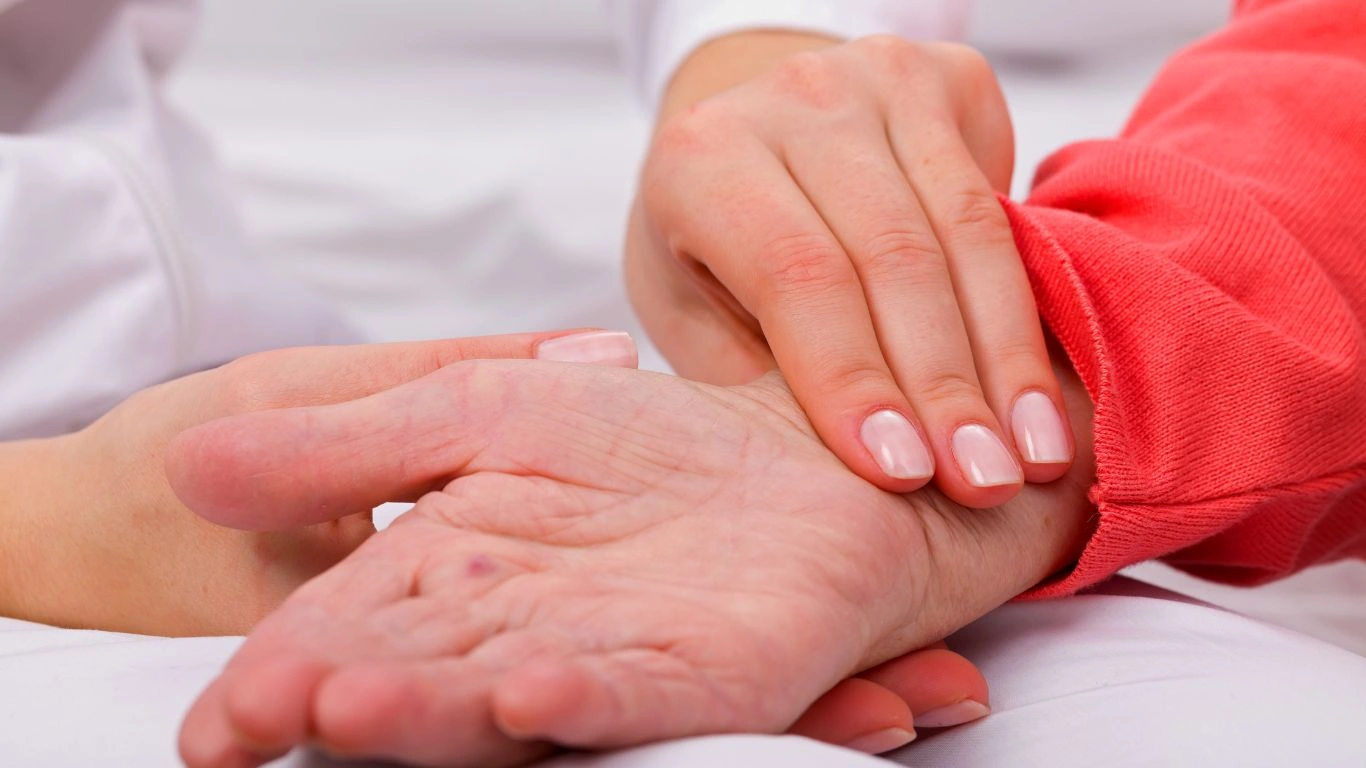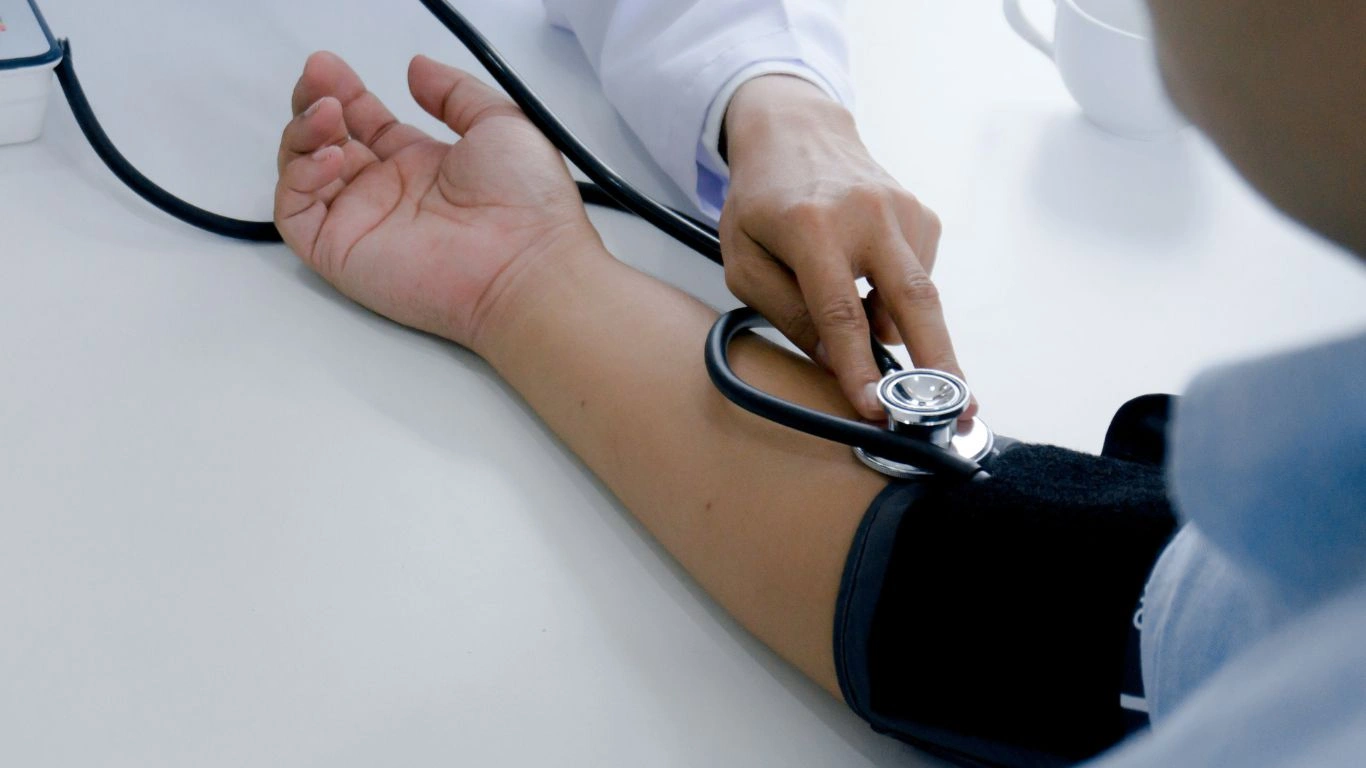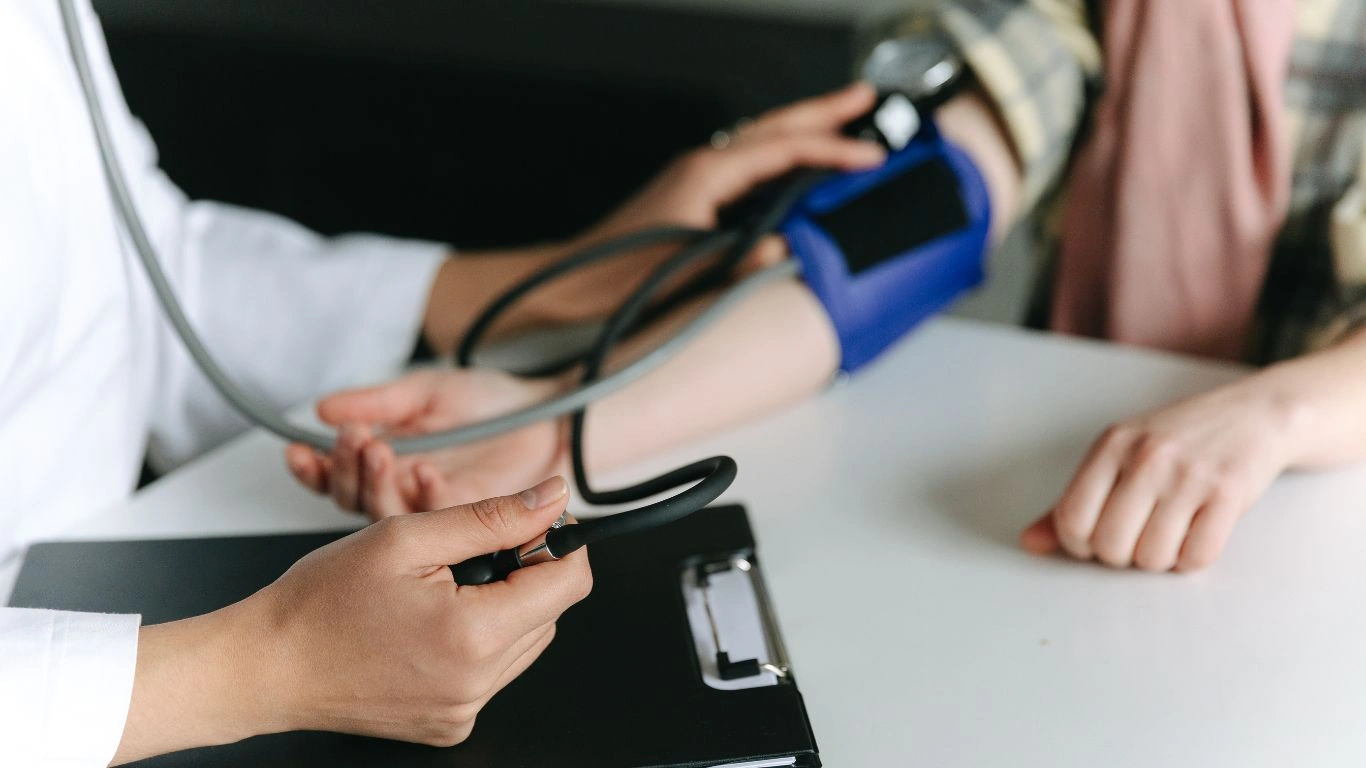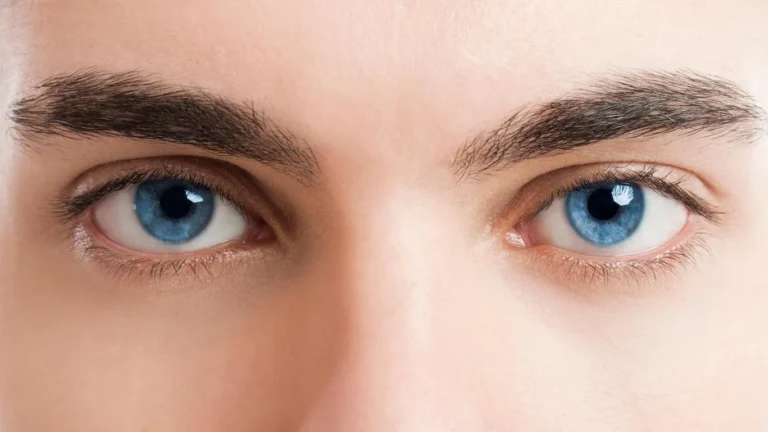High Blood Pressure and Dry Mouth: The Alarming Hidden Connection
If you’ve ever wondered about the high blood pressure and dry mouth connection, you’re not alone. I’ve had more than a few patients walk into my clinic looking confused and frustrated, asking, “Doc, why does my mouth feel like the Sahara desert ever since I started taking meds for my blood pressure?” And believe me, it’s not just your imagination. There’s actually a real physiological reason behind it — and it’s more common than you might think.
What’s Really Going On With High Blood Pressure and Dry Mouth?

Let’s talk shop for a moment — from my perspective in internal medicine, particularly in managing hypertension. When patients start managing high blood pressure, especially with medications, a range of side effects can show up. Dry mouth is one that often flies under the radar, but it can be incredibly disruptive. Not only does it feel uncomfortable, but it can also affect your oral health, sleep, digestion, and even your quality of life. And no, you’re not overreacting if it’s driving you nuts.
So, why does it happen? The short answer: some blood pressure medications reduce saliva production. But of course, nothing in medicine is ever that simple, right?
Medications: The Usual Suspects
Most cases of dry mouth in patients with hypertension trace back to a few common drug classes. Based on what I’ve seen in clinic and patient feedback, here are the main culprits:
- Diuretics (aka “water pills”): These are often prescribed to help reduce blood volume and pressure. The downside? They also dehydrate you. Less water in your system = less saliva. It’s math… and biology.
- Beta-blockers: These can sometimes mess with the autonomic nervous system, which regulates saliva production. I had a patient once say beta-blockers made their mouth feel like “they’d been chewing cotton for hours.” Accurate.
- ACE inhibitors & ARBs: While incredibly effective, they can sometimes lead to mouth and throat dryness. Some even report a persistent dry cough along with that parched feeling.
Not everyone on these meds will get dry mouth, but if you’re nodding along thinking, “Yup, that’s me,” then chances are, you’re reacting to one or more of the medications above.
It’s Not Just the Meds
Here’s the kicker — it’s not always the medication alone. From my clinical perspective, a lot of patients with high blood pressure are also dealing with other conditions that can contribute to dry mouth:
- Age-related changes: Let’s face it, as we get older, our salivary glands just don’t pump like they used to.
- Comorbidities: Diabetes, autoimmune disorders like Sjögren’s syndrome, and even sleep apnea can exacerbate the issue.
- Lifestyle factors: Not drinking enough water, smoking, drinking alcohol excessively (yes, that glass of wine counts), and even stress can all dry you out.
It’s rarely a one-size-fits-all situation. As an internist, part of my job is piecing together the puzzle: Is it the medication? A combo of meds? Underlying health issues? Or all of the above?
Why This Connection Matters More Than You Think

I remember one patient in her late 60s who came in mostly to talk about high blood pressure management, but as we talked, she casually mentioned how she’d started waking up in the middle of the night with her tongue stuck to the roof of her mouth. She thought it was “just a weird quirk.” But when we dug into it, it turned out her dry mouth was causing sleep disturbances, which then affected her blood pressure even more.
This stuff is all connected. Chronic dry mouth can increase the risk of:
- Tooth decay and gum disease: Saliva is your mouth’s natural defense system. Without enough of it, bacteria thrive.
- Difficulty chewing and swallowing: Especially problematic if you’re on a low-sodium diet and need to eat more whole foods that take real effort to chew.
- Altered taste and appetite: Some people start avoiding food altogether because of discomfort, which can lead to unintended weight loss or poor nutrition.
And don’t even get me started on the impact dry mouth can have on communication. I had a retired teacher tell me she had to give up substitute teaching gigs because she couldn’t speak comfortably for more than a few minutes at a time. That’s a quality-of-life issue, plain and simple.
The Vicious Cycle
Here’s another clinical insight: the high blood pressure and dry mouth connection can create a loop. Dry mouth might lead to poor sleep, which leads to increased stress and inflammation, which in turn raises blood pressure. And around we go.
For patients trying to manage hypertension, adding another problem into the mix — like chronic dryness — can feel overwhelming. I always tell my patients: You’re not crazy, and you’re definitely not alone.
What You Can Do About It (Don’t Worry — There’s Hope)

The good news? There are ways to manage both your blood pressure and your mouth dryness without losing your mind. In the next section, I’ll walk through tips, product recommendations I often give my own patients, and how to talk to your doctor about possible med changes — because sometimes, a tweak in the prescription makes all the difference.
Real-World Strategies to Tackle the Dry Mouth Struggle

Now that we’ve covered the why, let’s talk about the what-you-can-do. In my practice, I always tell patients: managing the high blood pressure and dry mouth connection doesn’t mean choosing between your heart health and your comfort. You just need the right tools in your toolbox — and a bit of trial and error to find what works best for you.
Here are some tried-and-true strategies I often recommend (and in many cases, have seen work wonders):
1. Hydration, but Make It Smart
Okay, yes — this sounds painfully obvious, but it bears repeating. Staying hydrated is key. But here’s the trick: it’s not just about drinking water. It’s about sipping water throughout the day, not chugging a gallon at once (your kidneys will just flush it out anyway).
- Keep a bottle with you — bedside, desk, car, everywhere.
- Use a humidifier at night. Seriously. Game changer.
- Limit caffeine and alcohol — they’re diuretics and will only dry you out more.
I’ve had several patients who noticed a marked difference in mouth moisture just by using a bedside humidifier and making hydration more intentional.
2. Chew Something — But Be Strategic
Chewing stimulates saliva production. Sugar-free gum or lozenges can help, especially the kind with xylitol (bonus: it also helps fight cavities). But not all gums are created equal, and some artificial sweeteners can upset your stomach if overused. Balance is everything.
And heads up: avoid mints with alcohol-based ingredients — they may give you a quick fresh feeling but can worsen dryness long-term.
Medication Tweaks Might Make a Difference

This part often makes patients nervous, but hear me out — you do not have to just “deal with it.” If your dry mouth is making daily life miserable, it’s worth revisiting your medications with your doctor.
In fact, I regularly review meds with my patients to look for alternatives that might be less drying. Sometimes, even adjusting the timing of the dose (like taking your diuretic earlier in the day) can reduce symptoms overnight. Here’s how I usually break it down during consultations:
- Diuretics too strong? Consider lower doses or switching to a potassium-sparing version.
- On multiple meds? We might reduce or rotate one out to find a better combo.
- ACE inhibitor or ARB causing dry cough too? Could be worth switching between the two classes — some people tolerate one better than the other.
Never stop or switch blood pressure medications on your own — always consult your provider. But don’t be afraid to bring it up, either. Your comfort matters as much as your numbers.
Talk to Your Dentist, Too
Dry mouth is more than a nuisance — it’s a dental risk. Your dentist can help protect your teeth and gums from the fallout. I usually suggest patients dealing with chronic dry mouth do the following:
- Use a fluoride toothpaste and mouth rinse daily.
- Get regular cleanings — don’t skip those checkups!
- Discuss prescription saliva substitutes or special products (some are over-the-counter, like Biotène or ACT Dry Mouth).
Don’t be surprised if your dentist notices signs of dry mouth before you even mention it — they’re often the first line of defense here.
It’s Not All Physical: The Mental Side of Dry Mouth and Hypertension

Here’s something that gets overlooked way too often: stress. It’s one of the sneakiest contributors to both high blood pressure and dry mouth. And I can’t tell you how many patients I’ve seen where stress management was the real key to breaking the cycle.
Stress activates your sympathetic nervous system (that good old “fight or flight” response), which can dry out your mouth and raise your blood pressure — double whammy. It’s why I always ask about sleep, anxiety, work pressure, family stuff. These aren’t just lifestyle questions; they’re diagnostic clues.
Stress Management Tactics I Often Recommend
- Breathing exercises (box breathing is a favorite — inhale 4, hold 4, exhale 4, hold 4)
- Gentle movement like yoga or walking — nothing intense, just enough to lower cortisol
- Short daily moments of calm — even five minutes counts. Morning coffee without your phone, a walk without a podcast, etc.
I had one patient who started journaling every morning and saw not only improvements in his blood pressure but fewer dry mouth episodes at night. Don’t underestimate how connected all this really is.
How to Bring This Up With Your Doctor (And Why You Should)
Look, I get it — when you’re sitting in your primary care doc’s office trying to cram in updates about blood pressure readings, cholesterol, weight, and refills, something like “Hey, my mouth is dry” might feel… small. But it’s not.
When I’m in clinic, I genuinely want to hear about those details. They matter. They often point to deeper patterns or reactions to medication that we need to know about.
Here’s how you can bring it up effectively:
- Be specific — “My mouth feels dry most mornings and again in the afternoon.”
- Mention timing — “It started a few weeks after I began this medication.”
- Share impact — “It’s affecting how I sleep, and my throat feels sore every morning.”
This helps your physician (or someone like me) identify patterns and decide what adjustments might help you feel better — not just manage your numbers.
Remember, managing hypertension is a marathon, not a sprint. But that doesn’t mean you have to run it feeling parched and miserable. You deserve to feel good while staying healthy.
Natural Remedies and Supportive Therapies to Ease Dry Mouth

By now, we’ve covered the medical side, the lifestyle tweaks, and even some overlooked angles of the high blood pressure and dry mouth connection. But let’s go a step further — into natural support. Because honestly? A lot of patients prefer to start here before turning to another pill, and I respect that. I’ve seen these methods help support comfort and improve outcomes without clashing with their blood pressure regimens.
Simple Remedies My Patients Have Found Useful
- Oil pulling with coconut oil — a bit of an old-school trick, but one that’s helped several folks. It doesn’t “cure” dryness, but it coats the mouth and creates a smoother environment for a few hours.
- Licorice root tea (deglycyrrhizinated) — It’s soothing and may promote mucosal moisture. But heads up: always go for the deglycyrrhizinated version to avoid raising blood pressure.
- Slippery elm lozenges — Natural and gentle on the mouth lining, especially helpful before bed.
- Aloe vera juice (unsweetened) — This one’s hit or miss, but a couple of my patients swear by it. Just make sure it’s BP-friendly and without added sodium.
Of course, always talk to your healthcare provider before adding anything new, even “natural” remedies. Just because something’s herbal doesn’t mean it’s harmless — especially when you’re managing something as critical as hypertension.
Supplements That May Support Saliva Production
There’s not a magic pill to fix dry mouth, but certain nutrients seem to support overall oral hydration and gland function:
- Vitamin B complex — Especially B1, B2, and B6. I’ve found many of my older patients with dry mouth were also running low on B vitamins.
- Zinc — Important for taste and salivary gland health. But too much zinc can cause GI upset, so stay within safe daily limits.
- Omega-3 fatty acids — Anti-inflammatory and may improve glandular function over time.
Again, not miracle cures — but part of a more holistic support strategy. And honestly, it’s those small layered changes that seem to make the biggest difference long-term.
When to Dig Deeper: Other Causes Worth Considering

One of the most important things I’ve learned over the years is this: not every dry mouth complaint is tied directly to medication. Sometimes it’s a red flag for something else going on in the background. And I’d be doing my patients a disservice if I didn’t look deeper when things aren’t adding up.
Here’s when I start digging a bit further:
- Symptoms started before BP meds — that’s a clue it might not be drug-related.
- Dry eyes too? That raises flags for autoimmune conditions like Sjögren’s syndrome.
- Persistent yeast infections in the mouth — often a sign of immune suppression or poorly controlled diabetes.
- Unexplained fatigue, joint pain, or rashes — these can point to broader systemic issues affecting moisture production.
If any of this sounds familiar, don’t wait. This is where coordination with specialists (rheumatology, endocrinology, etc.) comes in. I’ve caught more than one early case of Sjögren’s by listening to a patient’s “minor” complaint about dry mouth. It’s never minor when it’s impacting your life.
Daily Habits That Create a Healthier Oral-Blood Pressure Balance
Managing high blood pressure and dry mouth is about balance — the right meds, a little strategy, a few habit tweaks. When I look at the patients who manage these issues best, it’s usually because they’ve gotten really good at consistency, not perfection.
Here’s a summary of daily habits I often encourage:
- Use a non-alcohol mouthwash before bed (preferably with fluoride).
- Brush with a high-fluoride toothpaste — your dentist can recommend one.
- Set a reminder to sip water every hour.
- Eat crunchy fruits and veggies when possible — they stimulate saliva naturally.
- Don’t skip meals — chewing = saliva stimulation.
I like to remind folks: it’s not about overhauling your life in a week. It’s about layering small, supportive changes that make living with hypertension easier, not harder.
Final Thoughts: Advocate for Yourself
At the end of the day, the high blood pressure and dry mouth connection is one of those topics that often gets brushed aside — but it can have a huge impact on your health, happiness, and confidence. As a physician, I’m always pushing my patients to speak up, even about “small stuff.” Because when you’re dealing with something every single day, it’s not small. It’s real.
Your blood pressure goals matter. But so does your sleep. Your smile. Your comfort during conversations. Your ability to enjoy food. And that’s what makes this whole discussion so important.
If you’re not getting relief, don’t settle. There are solutions. And if your provider doesn’t take your concerns seriously — find someone who does. You deserve a care plan that supports your full health picture, not just a BP number on a chart.
References
Disclaimer
This article is for informational purposes only and reflects personal clinical experience combined with current best practices. It should not be used as a substitute for professional medical advice, diagnosis, or treatment. Always consult your physician or healthcare provider before making any changes to your medications or health routines.

Dr. Gwenna Aazee is a board-certified Internal Medicine Physician with a special focus on hypertension management, chronic disease prevention, and patient education. With years of experience in both clinical practice and medical writing, she’s passionate about turning evidence-based medicine into accessible, actionable advice. Through her work at Healthusias.com, Dr. Aazee empowers readers to take charge of their health with confidence and clarity. Off the clock, she enjoys deep dives into nutrition research, long walks with her rescue pup, and simplifying medical jargon one article at a time.







